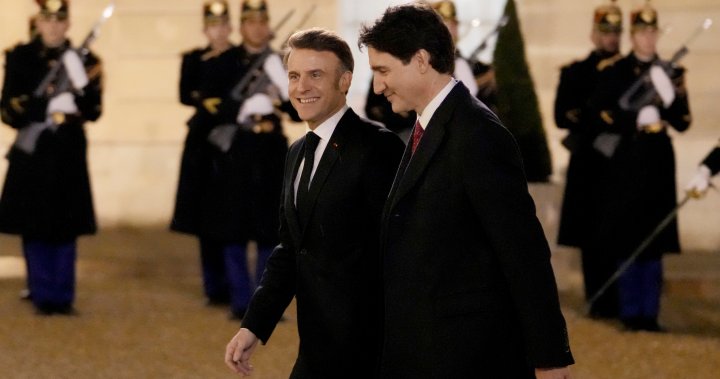Canada
Trudeau in Paris for AI summit as Trump set to announce new tariffs

Navigating Global Shifts: Canada and the U.S. at a Crossroads
Introduction: A Tale of Two Agendas
In a striking juxtaposition of global events, Canadian Prime Minister Justin Trudeau found himself in Paris for a pivotal Artificial Intelligence summit, while U.S. President Donald Trump was poised to announce tariffs on steel and aluminum imports from Canada. This dual scenario underscores the complex dynamics of international relations, where nations balance cooperation with economic strategies that can strain alliances.
Canada’s Strategic Focus on AI
Trudeau’s attendance at the AI Action Summit highlighted Canada’s commitment to innovation. The summit, a platform for global collaboration on AI advancements, emphasized the technology’s transformative potential across industries. Trudeau’s focus was on positioning Canada as a leader in responsible AI development, a move that not only enhances national competitiveness but also addresses ethical considerations in technology.
Trump’s Tariff Announcement and Its Implications
Concurrently, Trump’s decision to impose 25% tariffs on steel and aluminum sent ripples through the economic landscape. Despite Canada and Mexico receiving a 30-day tariff reprieve, the announcement signaled a shift in U.S. trade policy. The tariffs, though temporarily delayed, represent a significant challenge for Canadian industries, potentially disrupting supply chains and trade relations.
A Surprising Commentary on Sovereignty
In an unexpected twist, Trump’s remark about Canada potentially becoming a U.S. state added a layer of intrigue. While his comment was met with skepticism, it sparked conversations about the future of bilateral relations. This statement, though likely rhetorical, highlights the evolving nature of U.S. foreign policy under Trump.
The Absence of Diplomatic Engagement
Despite both Trudeau and U.S. Vice President JD Vance attending the AI summit, no meeting was scheduled between them. This absence of direct engagement may reflect the current tensions, where economic disputes take precedence over collaborative opportunities. The lack of dialogue underscores the challenges in finding common ground between the two nations.
Reactions and the Road Ahead
The tariffs and Trump’s remarks have prompted Canada and Mexico to consider retaliatory measures, emphasizing the need for a unified response. These developments illustrate the delicate balance of power and cooperation in international relations. As both countries navigate these challenges, the focus remains on safeguarding economic interests while preserving a framework for future collaboration.
Conclusion: Navigating Uncharted Territory
The dual events in Paris and Washington encapsulate the multifaceted nature of Canada-U.S. relations, marked by合作 and competition. As both nations address the tariffs and broader strategic issues, the path forward will require deft diplomacy and a commitment to shared goals. The interplay between economic strategies and global cooperation will undoubtedly shape the future trajectory of this crucial relationship.











